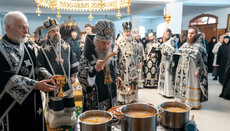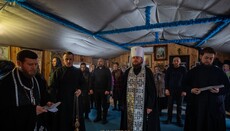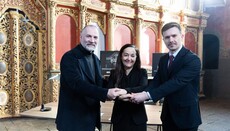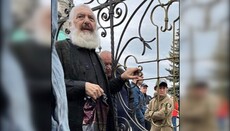KDA professor: Public opinion on the UOC has been deliberately inflamed
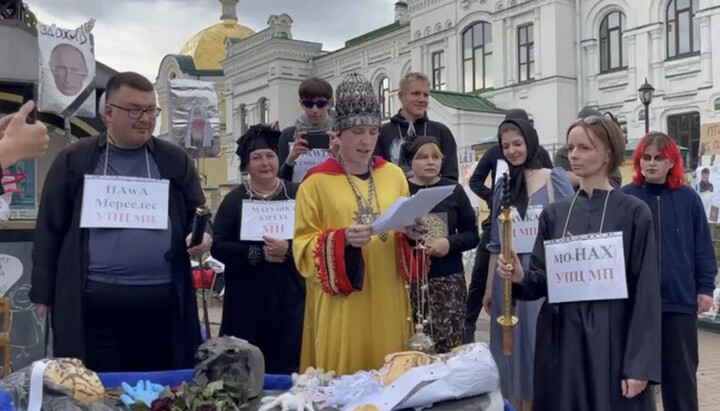
Professor Bortnyk believes that since December 2022, religion has been instrumentalized within Ukraine.
On December 10, 2024, during the European Ecumenical Consultation in Warsaw, Professor Serhiy Bortnyk from the Kyiv Theological Academy delivered a report highlighting changes in attitudes toward the Ukrainian Orthodox Church (UOC) in Ukrainian society over the past two years.
According to him, public opinion on the UOC was intentionally shaped negatively through the dissemination of a large volume of critical stuff.
“Interest in the religious topic in the media space was deliberately sustained by the stakeholders. This is evident from the large amount of negative information about the UOC and its representatives that emerged even before the law ‘On Protecting Constitutional Order in the Activities of Religious Organizations’ was passed in late August. There is no doubt in my mind that public opinion was deliberately inflamed over these two years,” Bortnyk noted.
The professor pointed to a key turning point in state religious policy: “December 1, 2022, marked the shift in state policy. On that day, Ukraine’s National Security and Defense Council adopted a document titled ‘On Certain Aspects of the Activities of Religious Organizations in Ukraine.’ This led to the imposition of personal sanctions on several UOC hierarchs. Since December 2022, we have observed the instrumentalization of religion within Ukraine itself.”
He added that the team responsible for state religious policy was replaced in December 2022. Viktor Yelensky, a well-known religious scholar, assumed leadership of the State Service for Ethnopolitics and Freedom of Conscience (DESS).
“Yelensky was already known as an advocate for freedom of conscience before his appointment. However, under his leadership, the Ukrainian state effectively banned the country’s largest religious association over the past two years,” Bortnyk emphasized.
According to the professor, one of the leitmotif of the critical attitude toward the UOC within Ukraine was based on the following reasoning: “If we cannot achieve real military victories on the frontlines, they can be substituted with victories over an internal enemy – the Orthodox Church associated with the Moscow Patriarchate.”
Bortnyk believes this was important because “controlling public opinion was crucial to maintaining confidence in our strength and the belief that we are defeating the enemy – if not on the battlefield, then within the country.”
Earlier, the UOJ reported that the OCU leader accused all major religious centers in Russia of justifying the war.






